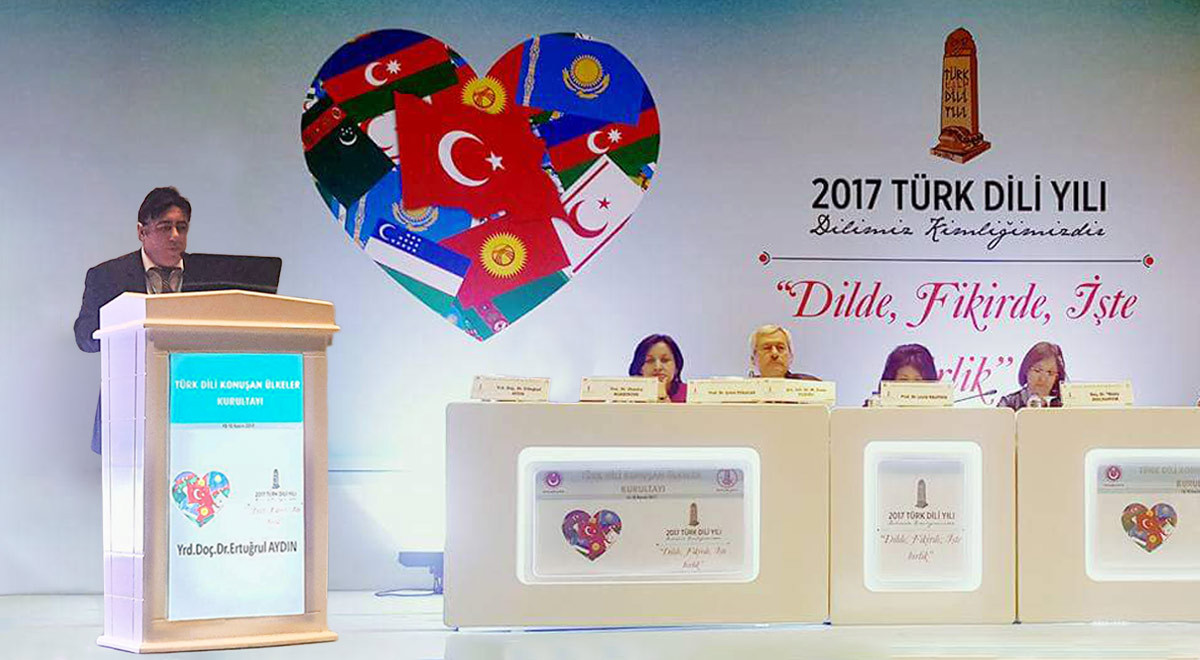Eastern Mediterranean University Education Faculty, Turkish and Social Sciences Department Academic Staff member Assist. Prof. Dr. Ertuğrul Aydın attended the Council of Turkic Speaking Countries organised in Ankara, Turkey through the joint collaborations of the Turkish Language Association and New Turkey Strategic Research Center.
Participated by 360 researchers from 50 countries in four continents, the council hosted presentations on ‘Turkish as a Common Language, the Use of Turkish as a Language of Informatics and Communication, Turkish as a Language of Instruction, Language Policies and the Use of Turkish, Globalisation, Turkic World and Turkish, Turkish as a Language of Translation, the Relationship of Turkish with Other Languages’. In the said event, EMU Education Faculty academic staff member Assist. Prof. Dr. Ertuğrul Aydın delivered a presentation titled “Globalisation, Interculturalism and Turkish”.
Touching upon the issues of ‘Globalisation, Interculturalism, Global Education and Turkish’ in his presentation, Assist. Prof. Dr. Ertuğrul Aydın stated that “Intercultural harmonisation or integration which is brought by globalisation has yielded positive outcomes in terms of education, labor and work ethics. At this point, the importance of Turkish as the mother tongue (primary language), and as a secondary language in other countries surfaces. The collaborations/relations/tendencies of the Turkish population in foreign countries including Belgium, Germany and Netherlands have gained importance in this respect. Starting with the candidacy of Turkey for the European Union membersip in 2005, Turkish has appeared amongst the official languages of the EU. Around 5,5-6 million Turks living within the boundaries of the European Union speak Turkish. In today’s world, Paris, London, Brussels, Berlin and Amsterdam have taken their places among the most cosmopolitan and multicultural cities of Europe. In these cities and also in the other important points of Europe, intercultural education should be highlighted as a point of interest both regarding labor and education sectors. Finally, instructional programs should enhance intercultural cooperation and the acceptance of all other cultures.”

